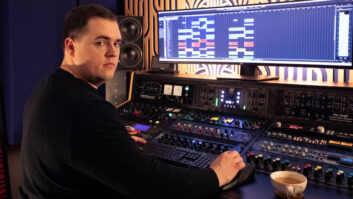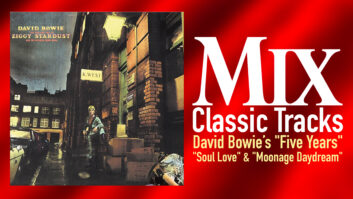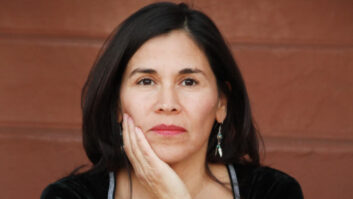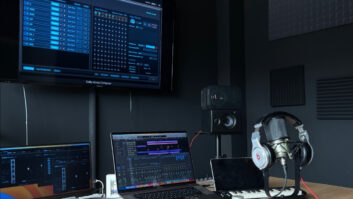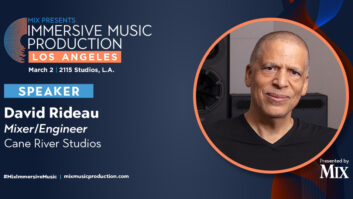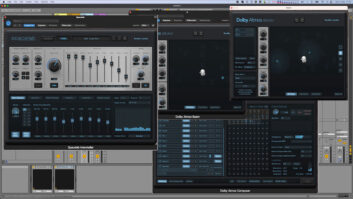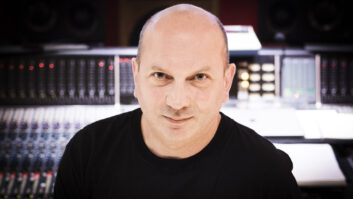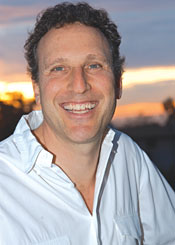
Like so many in the audio industry, David Kitay grew up in a musicmaking home. His mother was an opera singer who exposed him to a variety of influences, but the guitar gods — Jimmy Page, Jimi Hendrix and the rest — captured his soul.
After graduating from Palisades High School in Los Angeles, Kitay’s chops landed him a series of high-profile recording dates with industry luminaries such as Barry Mann and the Pointer Sisters. If you own a copy of the Pointers’ classic album from 1983, Break Out, that’s Kitay chugging away on the James Ingram song “Baby Come and Get It.” Kitay also started a record company with Steve Terrell, and after his own band, Darwin, plowed through their sixth engineer while recording an album for PolyGram Records, the guitarist decided that he had better learn something about working behind the board, as well.
“Steve brought some projects to the table that allowed me to move into underscoring, which was a goal of mine,” says Kitay. “A teen wolf cartoon got me started, and then I scored a comedy called Frank’s Place.” Eventually, he met director Amy Heckerling, who had directed Fast Times at Ridgemont High and was well-respected by the time she tapped Kitay to score Look Who’s Talking. The success of that film and its sequel, Look Who’s Talking Too, vaulted Kitay several rungs up the scoring ladder. Just when things were looking rosy, he took a year off.
“My mom died in 1991, and I decided to spend some time with my father and write songs,” he recalls. “A year later, when I decided I was ready to be a big-time composer again, nobody cared, and I had to start all over! Fortunately, I got the opportunity to score the series Mad About You, and then Amy called me to score Clueless, and the ball started to roll again.”
Art School Confidential, an independent film starring Max Minghella, John Malkovich, Jim Broadbent and Anjelica Huston, was recently shown at the Sundance Film Festival and will be released theatrically on September 1, 2006. Like all of Kitay’s scores, this one took shape in the studio that occupies the bottom floor of his Malibu, Calif., home.
“I have one rack of Neve stuff and another filled with APIs that I feed into my Pro Tools HD system,” he explains. “I do my sequencing in Logic running on a G5, and also still get a lot of mileage out of my Mackie D8B console. Of course, more and more processing is done inside the computer, and so the D8B functions more as a monitoring board, but I still think it’s an excellent console.
“My newest favorite toy is the Frontier TranzPort,” he continues. “It gives me wireless control over my Pro Tools transport. My studio is about 700 square feet, divided among several rooms. I love the fact that I can walk around and have control over the TranzPort from anywhere. Jack Viera helped me tune the room, and it’s a comfortable environment for me to track and mix in.”
Known for the way he combines large classical orchestrations and funk, Kitay has an array of guitars and GigaStudio workstations. “I have four ‘GigaStations,’ and I use them to create decent-sounding demos, but I almost always use live players on my scores,” he says. “I like the Sonic Implants orchestral samples very much, and I also use the Vienna Symphony Library. The new VSL interface sounds very interesting.
“When I track in outside studios, I always try to book [engineer] Danny Wallin,” he continues. “He has a fantastic ability to track a live orchestra so that it’s practically mixed by the time the session is over. I’ll bring his mixes back here, load them into Pro Tools, tweak things a bit and record my overdubs. It’s a great way to work, and knowing that you’re working with an engineer who has recorded some of the greatest scores of all time, including Raiders of the Lost Ark and Bonnie and Clyde, is inspiring!”
A pair of speakers built by Wallin are the main monitors in Kitay’s studio. “Although I don’t have a surround setup permanently installed here, I do set up three more speakers whenever I do a film mix. As far as soft sounds go, I’m a huge Absynth fan, and the Native Instruments guitar amp simulator rack is amazing. Lots of the EXS24 stuff inside Logic is great, and I also use Trilogy, the software bass module from Spectrasonics, a lot.”
Although he continues to be intrigued by the possibility of making a great record as part of a band, the solitary pleasures that the film business afford are more appealing to Kitay, who has two small children. “I love composing for movies; you don’t have to deal with anything other than that piece of celluloid!” he says. “I like the concept of a band, but working day in, day out with three to five other people can wear on me at times. I like the freedom to make my own choices, and then simply consult with one other person — the director — to make sure the music is working the way it should.”
On one of his most recent projects, The Darwin Awards (which also premiered at the 2006 Sundance Film Festival), Kitay took the unusual — probably unprecedented — approach of having the entire score performed in reverse and then digitally reversed in the mix process to mirror the darkness of the comedy. Starring Joseph Fiennes, Winona Ryder, Julianna Margulies, David Arquette, Wilmer Valderrama and the late Christopher Penn, The Darwin Awards honors a series of people who “accidentally kill themselves in interesting ways.”
Working on quirky films is nothing new to Kitay though. His credits include the original Scary Movie and Bad Santa. He recently completed work on Relative Strangers, which stars Danny DeVito, Kathy Bates, Neve Campell and Ron Livingston, and a British comedy, Caffeine. Speaking of a rush, Kitay says that “some people think I’m insane. I once had a director tell me that he’d be nervous about hiring me, but would make a movie about me!”

